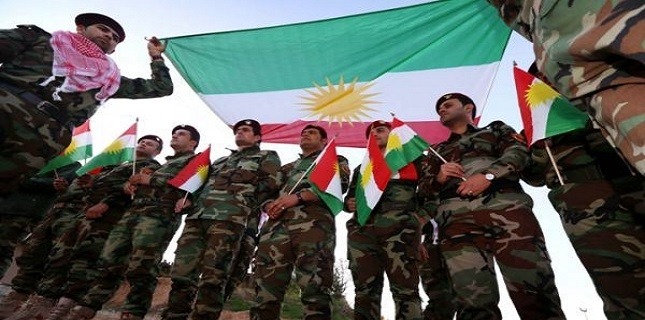President Trump announced last Wednesday in a Tweet that the US would withdraw its diplomats at once from Syria and the remaining 2,000 American special forces in the north of the country within a short period. Ignoring the geopolitical consequences of the decision, his motivation for the sudden decision was that US does not want to be the policeman in the Middle East and that he had promised his electoral base to withdraw the troops.
The decision took his own administration and the rest of the world by surprise. His Secretary of Defence Jim Mattis resigned in protest the following day. His decision followed a telephone call on 14 December with Turkish president Erdogan who reportedly asked him why there are still American troops in Syria when the Islamic State (IS) has been defeated.
IS still a threat
In fact, IS still controls some land in the Syrian-Iraqi border region and remains a terrorist threat. The most effective domestic fighting force against IS in northern Syria has been a Kurdish militia, the People’s Protection Units (YPG), the armed wing of the leftist Kurdish Democratic Union Party (PYD).
The American forces were embedded with the Kurdish militia and supported them in the fight against IS. Their withdrawal will leave the field free for Russia and Iran – whose military support to Assad tipped the balance in the war and enabled him to defeat the insurgency against him - to dictate the post-war political solution in Syria.
During the Assad regime the Kurds in Syria suffered discrimination and lack of civil rights. Inspired by the writings of the imprisoned Turkish-Kurdish leader Abdullah Öcalan, founder of the outlawed Kurdistan Workers’ Party (PKK), the Syrian Kurds established an autonomous region in northern Syria during the civil war. Refugees from other parts of Syria found shelter in the Kurdish-held region.
The main losers after the American withdrawal are the Syrian Kurds. Without American presence on the ground in Syria, there is nothing to stop Turkey from intervening again in northern Syria and crush Kurdish self-rule there. As happened before in its history, the Kurdish people has been betrayed again and will pay the price for Trump’s decision.
Turkish invasion
On 20 January, Turkey launched a military operation against Afrin, one of the areas under Kurdish control, which lasted until 18 March. It has recently announced that it will launch another military operation against the other Kurdish areas.
Turkey’s position is that YPG is a terrorist group linked to PKK, against which it has been fighting since 1984. A cease-fire during which Turkey and PKK entered peace negotiations ended in July 2015 when Turkey resumed bombing PKK bases in Iraq.
Turkish media is reporting that Turkey will not allow YPG to be present in the region since it fears that YPG aims at establishing an autonomous region in northern Syria by connecting different cantons which would provide YPG access to the Mediterranean Sea. EU did not openly protest against Turkey’s invasion of Afrin or its labelling of YPG as a terrorist group.
While PKK is still on the EU’s list of terrorist organisations, YPG is not. Fighters from YPG might in the past have joined PKK forces in Turkey, but the truth of the matter is that they defended the Kurdish areas in Syria against IS when Turkey turned a blind eye to them and the stream of jihadist foreign fighters. Turkish troops looked on when the Syrian-Kurdish town Kobane was besieged by IS.
Serge Stroobants, director at the Institute for Economics & Peace (IEP), which publishes the Global Terrorism Index, said at press briefing in Brussels in December that the West – after using the Kurdish forces in combatting IS - never intended to fulfil the Kurdish expectations for autonomy. “We know what is happening in Syria and Turkey,” he said diplomatically.
EU position
The Global Terrorism Database, which IEP is using for its data analysis of terrorism, lists only 7 incidents linked to YPG or PKK, often based on Turkish media reports, for which no organisation has claimed responsibility.
Birgit Loeser, deputy head of the Counter-Terrorism Division at the European External Action Service (EEAS), admitted at the same press briefing that there is no simple definition of terrorism. One person’s terrorist is another’s freedom fighter.
“We have raised our concerns to Turkey about its anti-terrorism legislation,” she said and was referring to Turkey’s application of such legislation to silence independent journalists and political opposition.
Asked by The Brussels Times for a comment on Trump’s withdrawal decision, a spokesperson for EEAS replied on Sunday (23 December) that “we are awaiting more details to be released on the implementation of this decision.”
“We will continue to work with the Global Coalition, of which the US is part, to fully defeat IS as well as to stabilise northern Syria but also Iraq,” the spokesperson added. “The EU position on Syria is clear and has not changed - this includes the full implementation of UN Security Council resolution 2254 (which calls for a ceasefire and political settlement in Syria) and working towards a political transition.”
An immediate concern at this stage is continued humanitarian access to northern Syria by those forces present in the area. Without international protection, the Kurds in northern Syria find themselves caught between Assad and Erdogan. “They are not different from another,” a Kurdish journalist said and expressed the feelings of many Kurds who now fear a loss of security.
M. Apelblat
The Brussels Times

